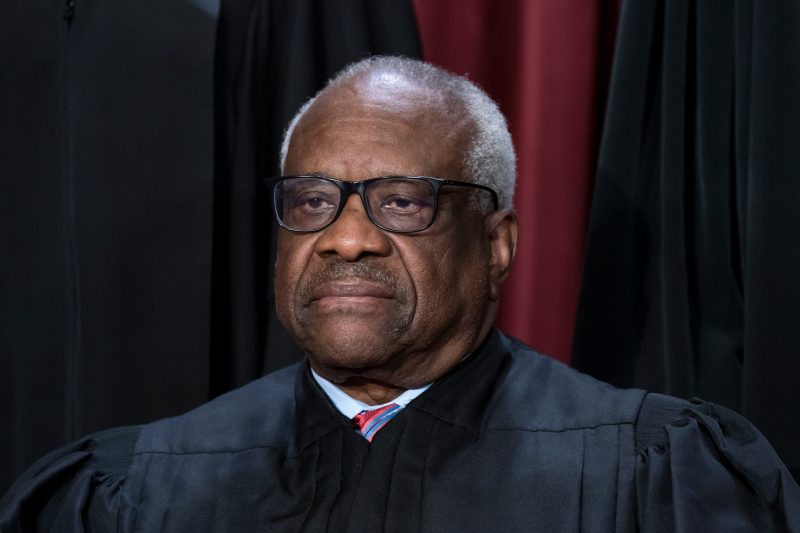In a move that has ignited intense debate within political circles, several Democratic lawmakers are advocating for a criminal investigation of Justice Clarence Thomas. The call for such an investigation comes in the wake of revelations regarding potential conflicts of interest and alleged violations of judicial ethics regulations.
Justice Thomas, the longest-serving member of the Supreme Court, has come under scrutiny for his connections to conservative advocacy groups and his wife’s involvement in political activism. These ties have raised concerns about potential conflicts of interest and whether Justice Thomas is able to adjudicate cases impartially.
The lawmakers pushing for a criminal investigation argue that Justice Thomas may have violated the law by failing to disclose his connections to these organizations and by participating in cases where he had a vested interest. They contend that his actions undermine the integrity of the Supreme Court and erode public trust in the judiciary.
Critics of the investigation proposal, however, assert that it represents an unprecedented and politically motivated attack on a sitting Supreme Court justice. They argue that Justice Thomas has not broken any laws and that the push for a criminal investigation is an attempt to intimidate and discredit him.
The issue has sparked a broader discussion about the role of the judiciary in a democratic society and the need for transparency and accountability among judges. The case of Justice Thomas raises important questions about the boundaries between judicial independence and accountability and how to address potential conflicts of interest within the judiciary.
As the debate unfolds, it is clear that the question of whether to investigate Justice Thomas is not just a legal issue but a political and ethical one as well. The outcome of this controversy will have far-reaching implications for the Supreme Court and the broader legal system in the United States.




























